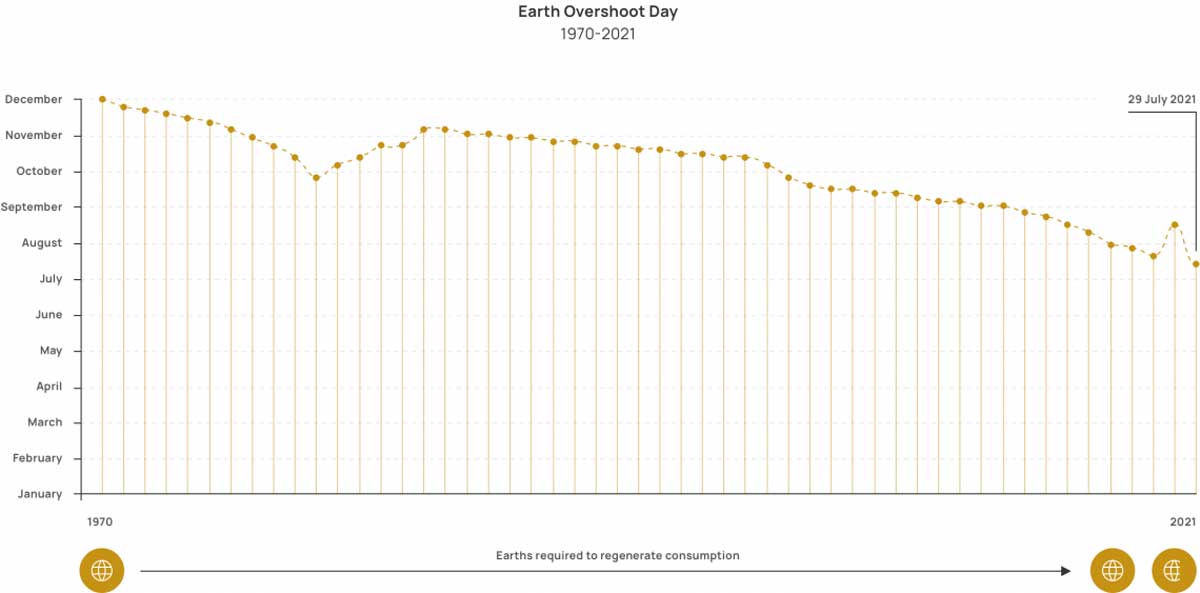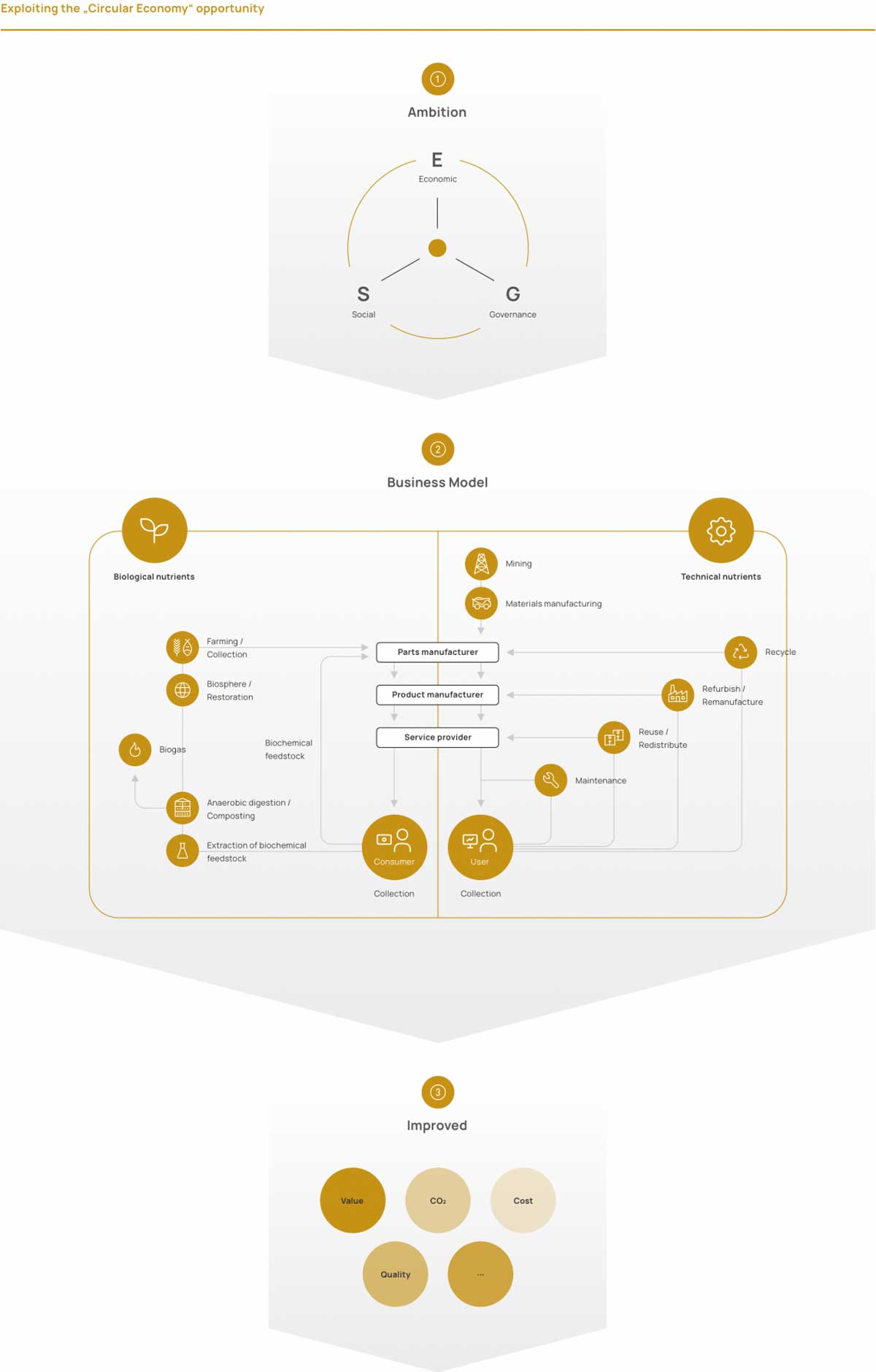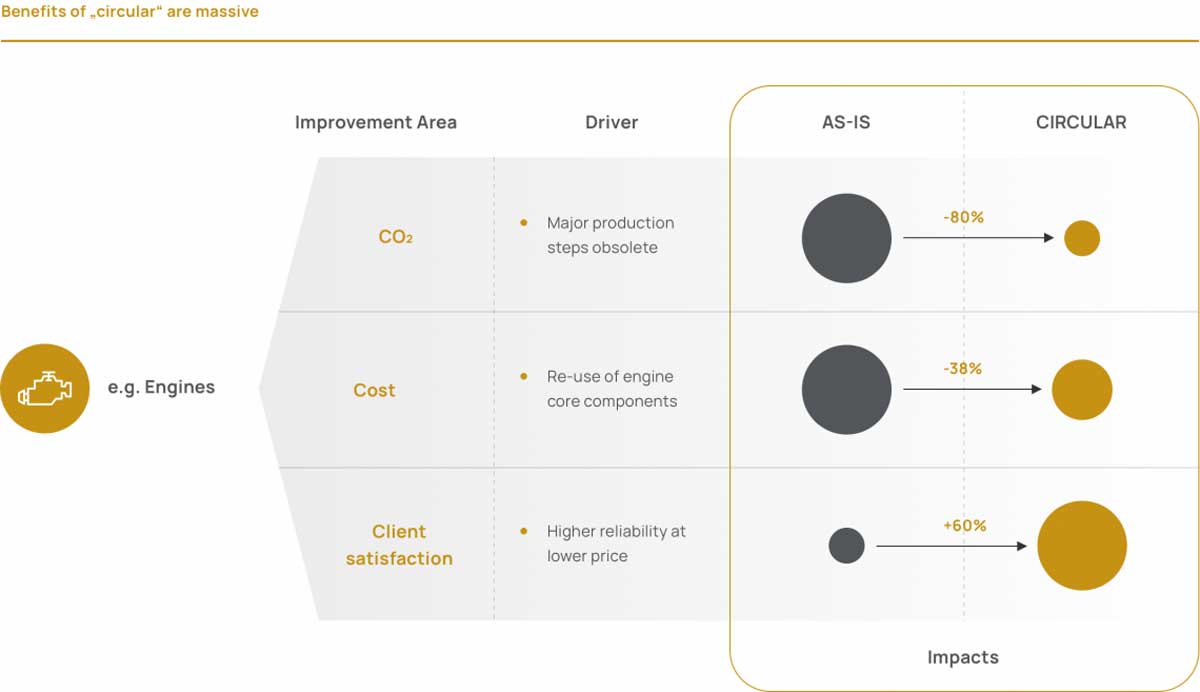Humanity is eating up the annual resources of our planet by far too fast
We need to act — but don‘t know how
Transformation requires us to make tough trade-off decisions. At a time when the scientific consensus is that mobility emissions need to be roughly halved by 2030 to achieve a 1.5°C climate scenario, the automotive industry is dramatically overshooting its estimated carbon and resource budgets. Even worse: car-based mobility is set to grow globally by around 70 percent by 2030, leading to a further deterioration if no counteractions are taken.
How can the “Circular Economy” help to succeed while creating value for your business?
The projected impact of CO₂ emissions scenarios is massive and has resulted in a call-for-action for leaders across the world. As a result, companies across all economic sectors are in the process of making carbon neutrality a core objective. One of the core approaches to achieving those ambitions is “circularity” – with most automotive materials already recyclable today.
Think circular growth opportunities
“Circularity” offers business opportunities worth trillions of euro
A Circular Economy is regenerative by design, and aims to keep products, components, and materials at their highest utility and value.
For example by:
- reusing, refurbishing and recycling
- maximizing inherent value in products
- reducing material and energy costs
- consuming services rather than purchasing assets.
Circular Economy is key – and estimated to create more than 1 trillion euros in value in Europe alone by 2025.
It is time to act. Now! Urgently! There are ways in which humanity can be successful.
So, let’s face the challenge! By adopting circular principles, you can:
- generate additional value from your materials and assets
- create more efficient operating models
- develop long-term service-based relationships with end consumers
- create less waste in a world with finite resources.
Interested?





